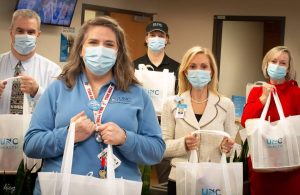For Tracy Carroll, MSN, RN, and nursing director at UNC Hospitals, caring for patients across the continuum of care is a hallmark of Carolina Care. Caring holistically for patients means understanding what each individual really needs to become healthy. For someone being discharged from the hospital, that could involve follow-up care and appointments, support at home or prescription medicines – or food.
“Food insecurity is a reality for many of the patients and families we care for,” said Carroll. “It is a challenge in and of itself, but imagine how much harder that is when you’re recovering from an illness – food insecurity is yet another stressor that impacts our patients’ ability to heal.”
As co-chair for Carolina Care, UNC Health’s patient experience and staff engagement initiative, Carroll has been involved with the UNC Health FoodWell program for patient assistance with food insecurity since the effort began in 2020.
Food Insecurity Spiked in 2020 and Still Persists
The UNC Health FoodWell program was created to eliminate immediate concerns about food for discharging patients, needs that skyrocketed during the pandemic and show no signs of slowing, with costs of nearly everything going up. FoodWell distributes bags of healthy food to patients at UNC Hospitals in Chapel Hill and Hillsborough and several outpatient clinics. To date, more than 2,100 patients and families have been served, with thousands of bags of food given out.

Though groups within UNC Hospitals previously had some capacity to get food to patients in need, those efforts weren’t consistently supplied or widely available to all patients identified as food insecure. FoodWell became a centralized UNC Health program in 2020 as the pandemic ramped up.
Program goals and structure were established by the FoodWell working group, which is co-chaired by Dan Lehman, UNC Health vice president for operations, support and professional services, and Eli Jordfald, UNC Health Foundation executive director for healthcare philanthropy. The working group includes nurse managers, physicians, social workers and members of Nutrition and Food Services, and has oversight for daily operations.
The interdisciplinary effort is supported across many areas of the hospital, including Nutrition and Food Services, Care Management, Guest Services, the Office of Diversity, Equity and Inclusion, and more.
Randi Towns, UNC Health’s director for Health Equity, said that for patients who struggle with food insecurity, providing food at discharge allows them to focus on their health as opposed to their next meal. “Given the importance of food to health,” said Towns, “improving access to food for those struggling with food insecurity is essential to advancing health equity.”
Patients can be identified as having food insecurity through a set of simple questions when they enter the hospital, or at any point during their stay, when a nursing manager, social worker, or other care team member might learn about possible food concerns. The program is designed to be easy to access, with minimal red tape.
Once the need is identified, a form is sent to the FoodWell program office and the patient’s name goes on the list for distribution. Staff in Nutrition and Food Services assemble bags full of nutritious, easy-to-prepare items designed to last 3-4 days. Finally, Guest Services team members deliver two bags to the patient, or their family, at discharge.
Every bag contains a similar selection, with two bags generally being enough food for the first week at home. The bags also include a list of food pantries and food banks in the patient’s community to help address ongoing needs.
Many UNC Health donors have contributed to FoodWell through a variety of donor activities and food-related funds. Corporate partner Butterball is the protein source for the program, donating steady supplies of turkey medallions or ground turkey that are delivered to the hospital in family-sized portions.
Donors Sustain and Grow FoodWell
In 2021 after learning about FoodWell, UNC Health Foundation donor Johnnie Sexton established The Xris Kessler Fund for Children Facing Hunger. Sexton’s educational audiology practice serves 70 North Carolina counties, where his staff regularly encounter families without sufficient food.
The Kessler fund contributes to FoodWell and honors Sexton’s husband Xris, who experienced food insecurity as a child.
“I truly believe that food insecurity for NC children and families is now at a crisis level. Food costs have skyrocketed and families are struggling,” said Sexton. “Xris and I have been fortunate to experience a huge response to the new fund, and through the goodness of our friends and colleagues, we have raised a good bit of money for this fund.”
Donors like Sexton help sustain and grow FoodWell. In addition to serving UNC Hospitals and several outpatient clinics, the program is being piloted at an oncology infusion clinic and at children’s specialty clinics.
Carroll said that FoodWell’s impact has been overwhelmingly positive on patients, many of whom cry tears of relief when presented with the grocery bags. One patient who had been worried about coming to the hospital called them ‘blessing bags.’ Another patient whom Carroll saw in the hall told her she had been worried about the challenges of returning home after surgery, but the grocery bags would help her get through until she could return to work.
With local hunger-related nonprofits reporting increased demand and fewer donations, the problem may get worse before it gets better.
“Sadly, food insecurity will continue to be a challenge for our patients and families,” said Carroll. “However, I am extremely grateful that we will continue to provide essential groceries to those who need it, thanks to the support of the UNC Health Foundation and our generous donors.”
For more information on how you can join us in the fight against food insecurity for vulnerable patients and their families, please contact Eli Jordfald, Executive Director, Healthcare Philanthropy, at eli_jordfald@med.unc.edu.
